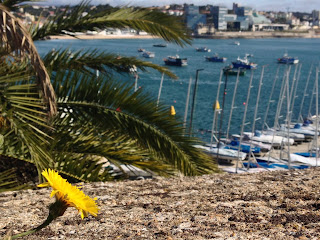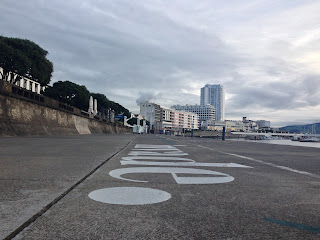"The pen is mightier than the sword"
Esta famosa frase que se traduce en algo así como que "A pluma é máis poderosa que a espada", remóntase nas súas orixes ao parecer á obra Cardinal Richelieu, de Edward Bulwer-Lytton (1839). Na obra, nun momento determinado, Richelieu descobre un complot para matalo pero como relixioso, non toma as armas contra os seus inimigos e François dille: "Pero tes outras armas ao teu dispor, meu bo señor" ao que Richelieu responde: "A pluma é máis poderosa que a espada... Quita a espada! Pódense salvar estados sen recorrer a ela!".
E é ben certo... moito poder teñen as palabras, e máis as escritas. Un poder alén da (re)conciliación, pois apela ao corazón dun xeito único e persoal. Emociona, evoca, convoca, move... cun ar case místico. Disto fala Martina McBride (1966) nesta canción "Straight To The Bone".
"Straight To The Bone"
I'm starin' at this empty chair, listenin' for the laughter that went clear up to the ceiling.
It's so long since you were sitting there and now the rust is rustin' and the paint is peelin'
I miss you
I read your letters and I almost break.
They're warm like flannel, I can still smell your after shave.
I don't spend all my time missin' you like this, but when it hits, it hits.
You felt like home, and I feel you now straight to the bone.
I miss you...
This sure can be a lonely place.
I wanna look up and see you there standin' in the doorway.
And I'd give anything to kiss your face and help ya blow out the candles on your next birthday.
You felt like home.
I feel you now, straight to the bone.
I miss you...
I wanna hear you in the kitchen, makin' noise, singin' out a tune at the top of your voice.
I wear these memories, it's a blessing and a curse 'cause when it hurts, it hurts.
You felt like home and I feel you now, straight to the bone.
I miss you... I miss you...
It's so long since you were sitting there and now the rust is rustin' and the paint is peelin'
I miss you
I read your letters and I almost break.
They're warm like flannel, I can still smell your after shave.
I don't spend all my time missin' you like this, but when it hits, it hits.
You felt like home, and I feel you now straight to the bone.
I miss you...
This sure can be a lonely place.
I wanna look up and see you there standin' in the doorway.
And I'd give anything to kiss your face and help ya blow out the candles on your next birthday.
You felt like home.
I feel you now, straight to the bone.
I miss you...
I wanna hear you in the kitchen, makin' noise, singin' out a tune at the top of your voice.
I wear these memories, it's a blessing and a curse 'cause when it hurts, it hurts.
You felt like home and I feel you now, straight to the bone.
I miss you... I miss you...






















































